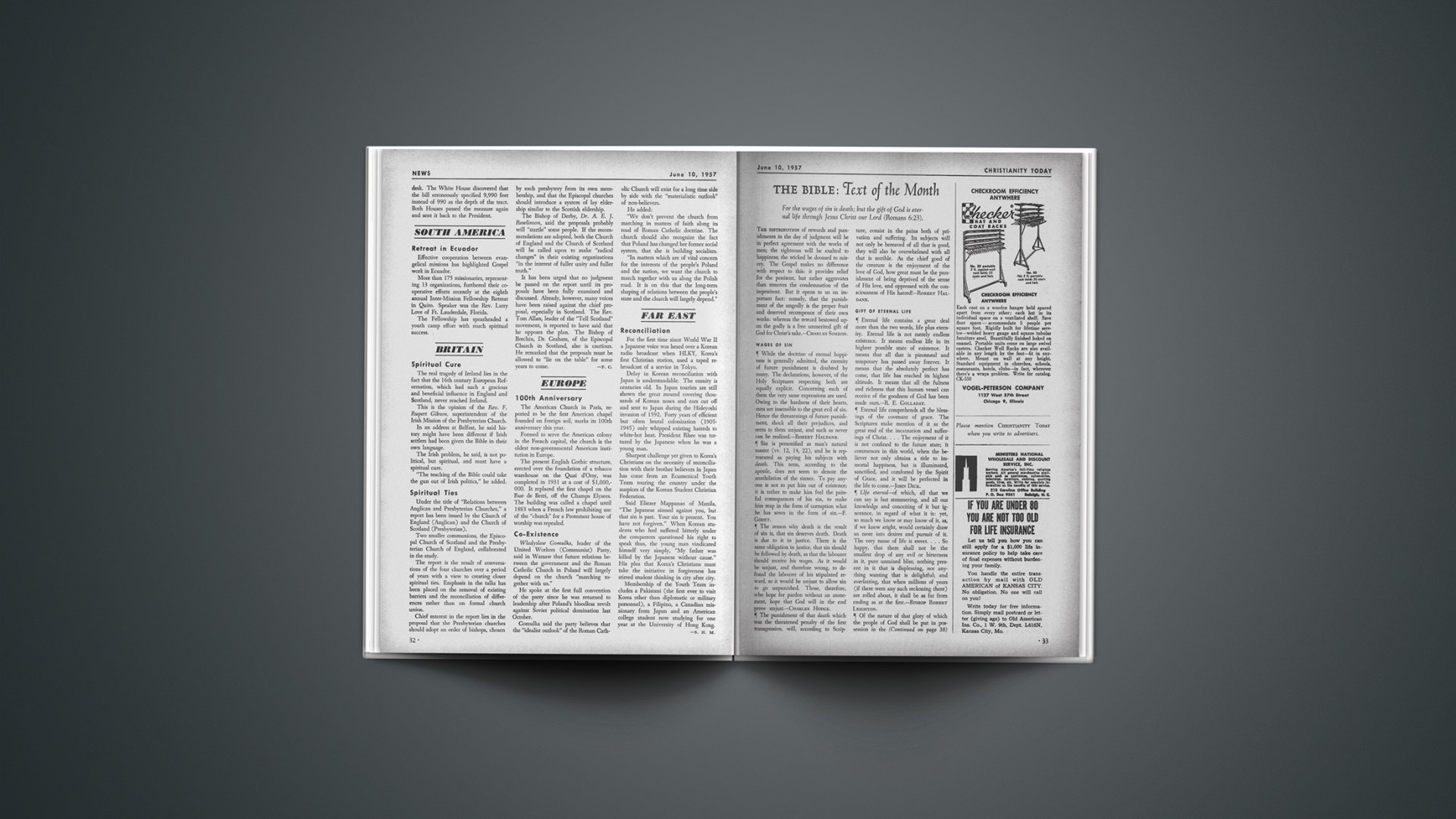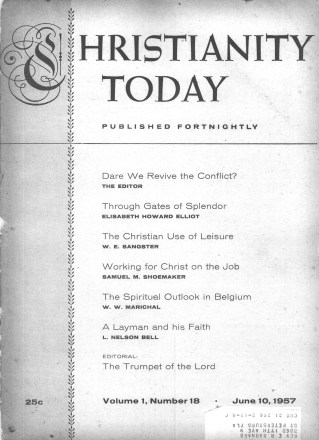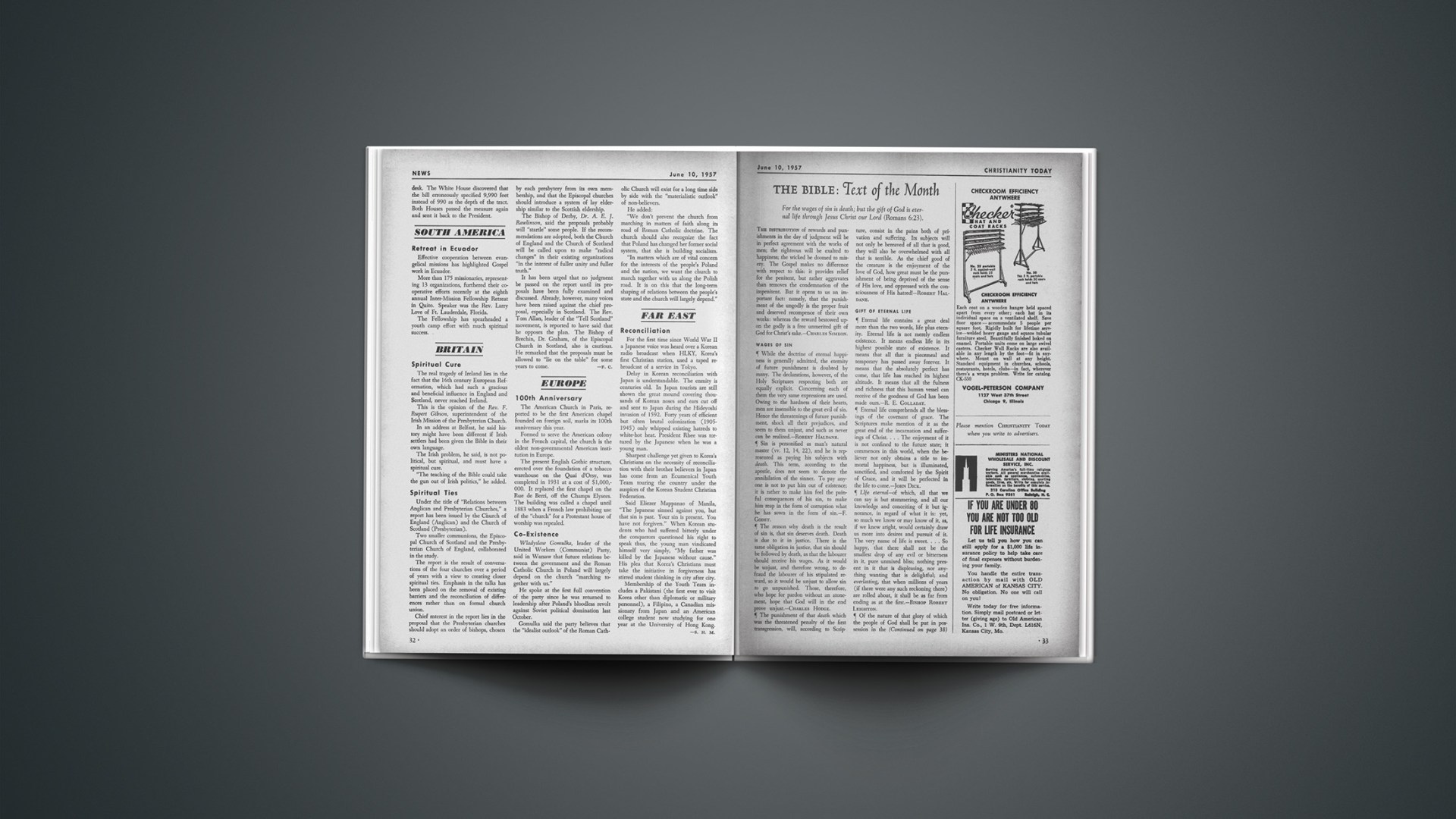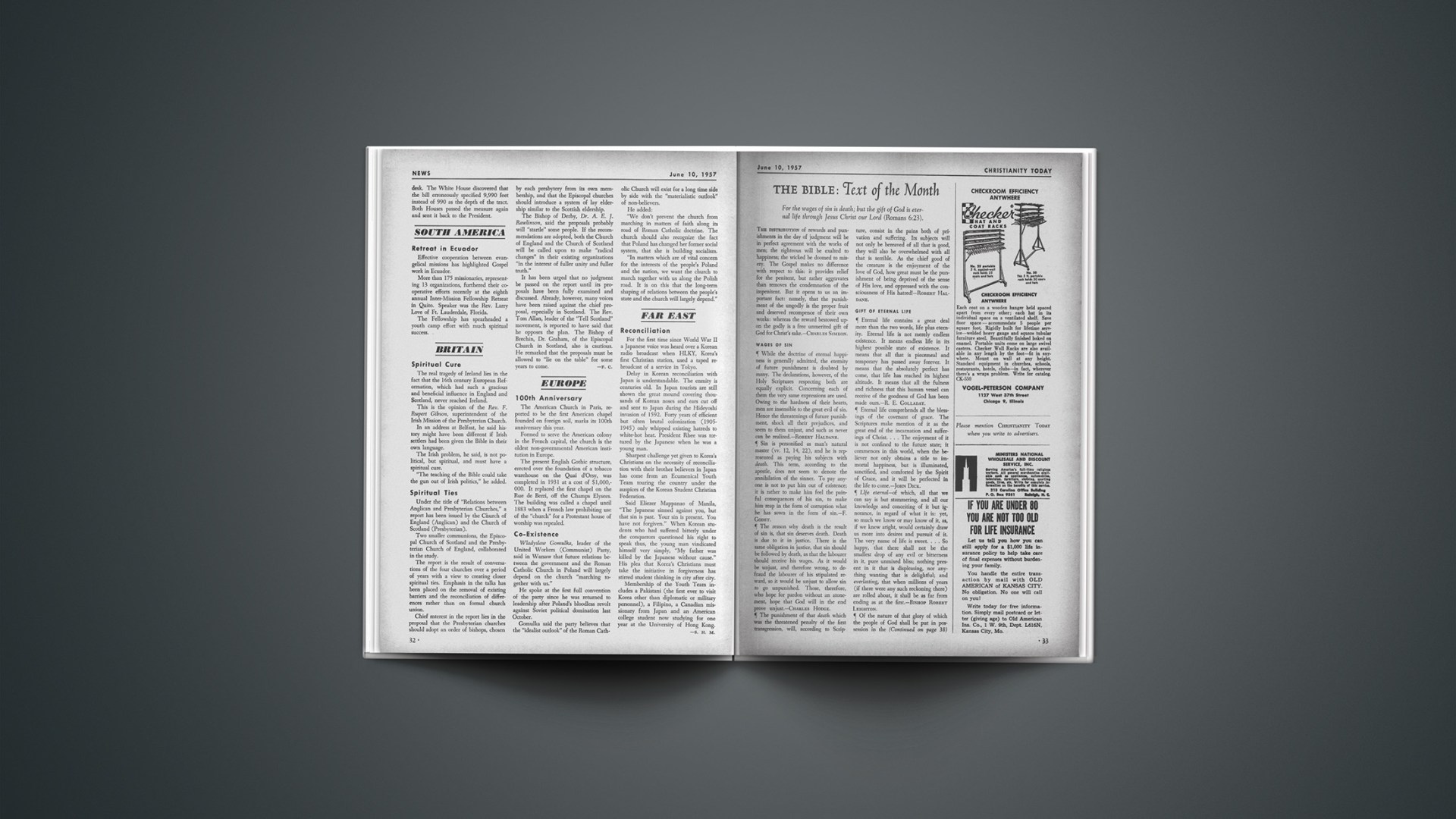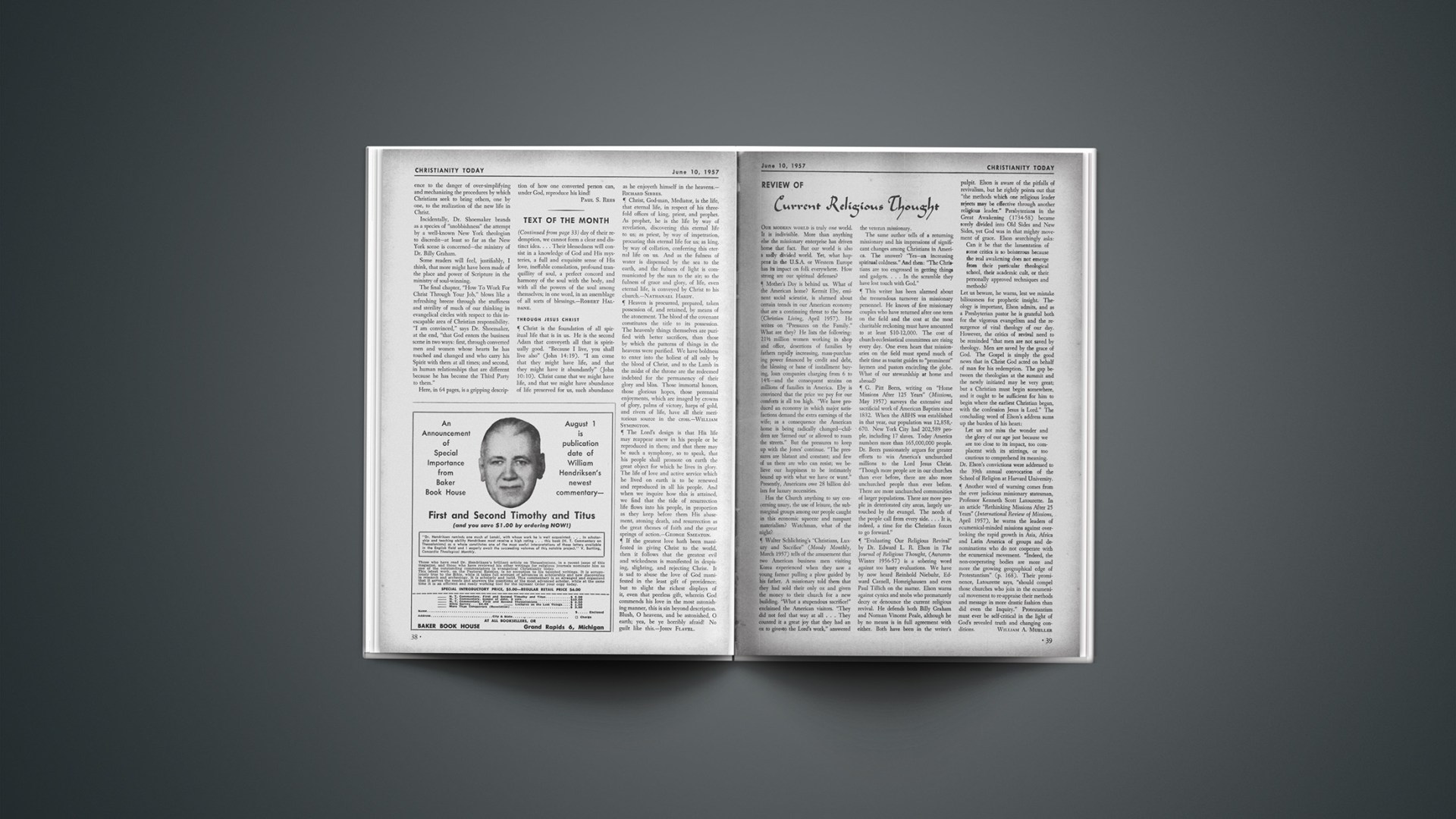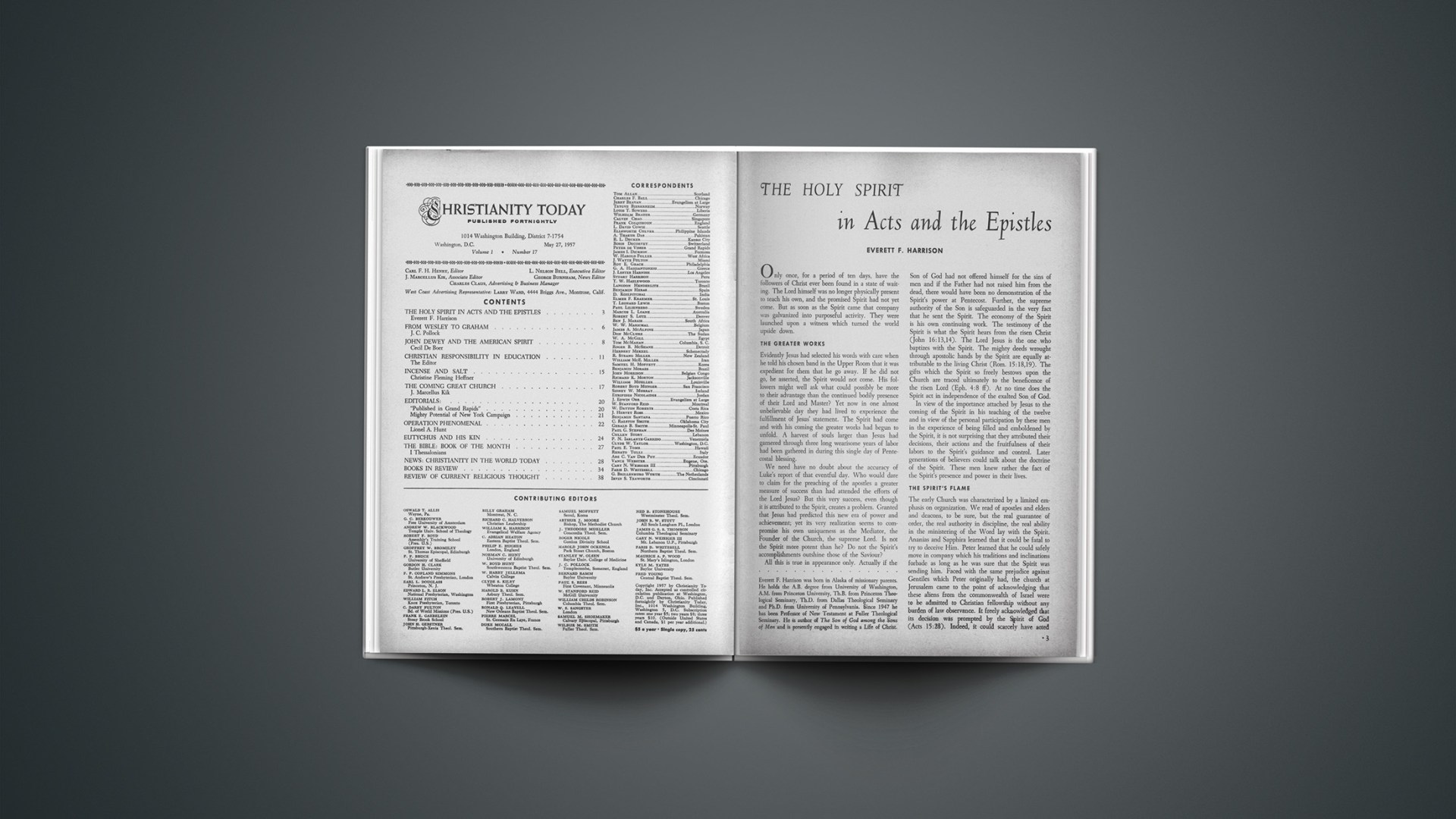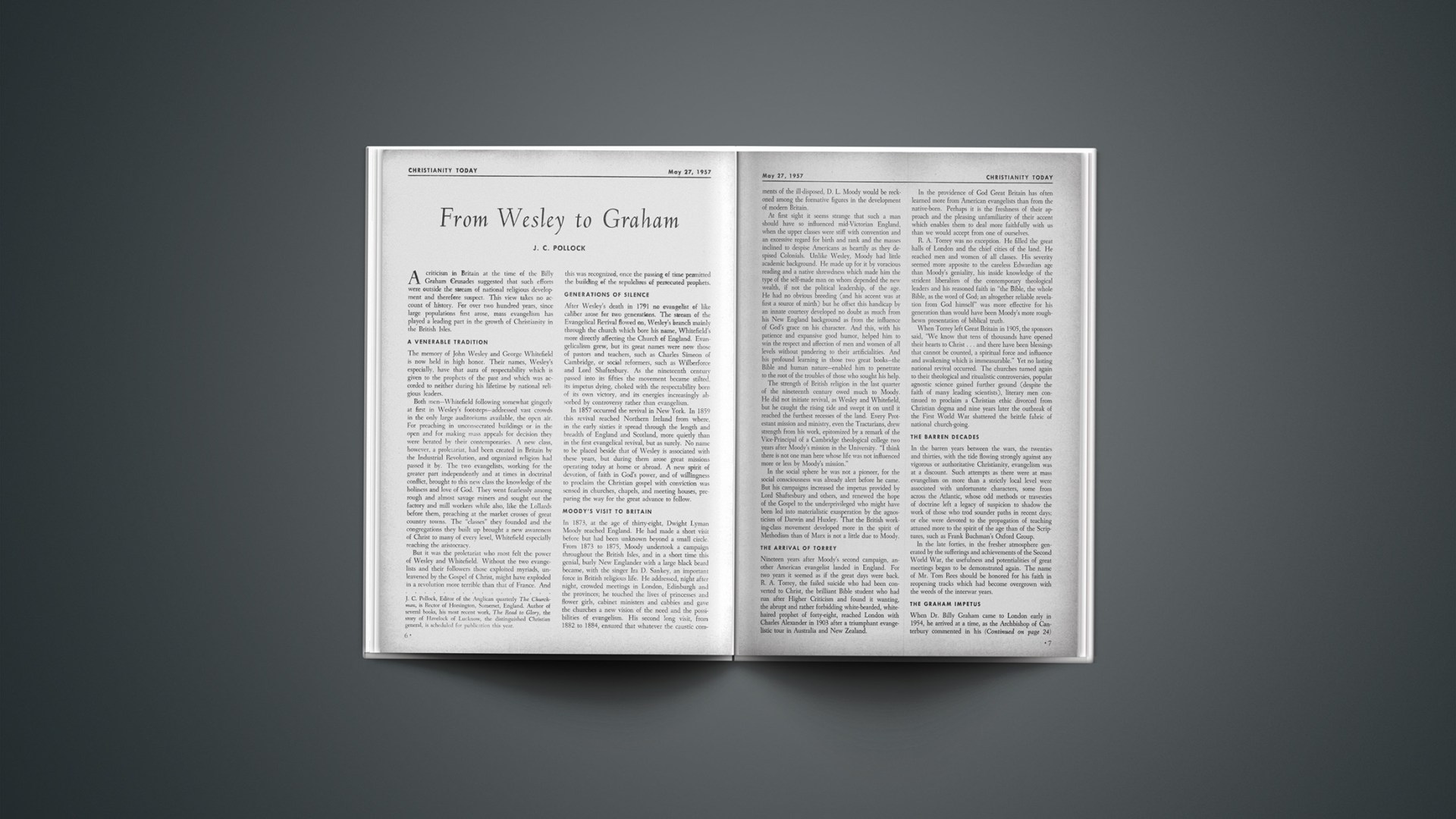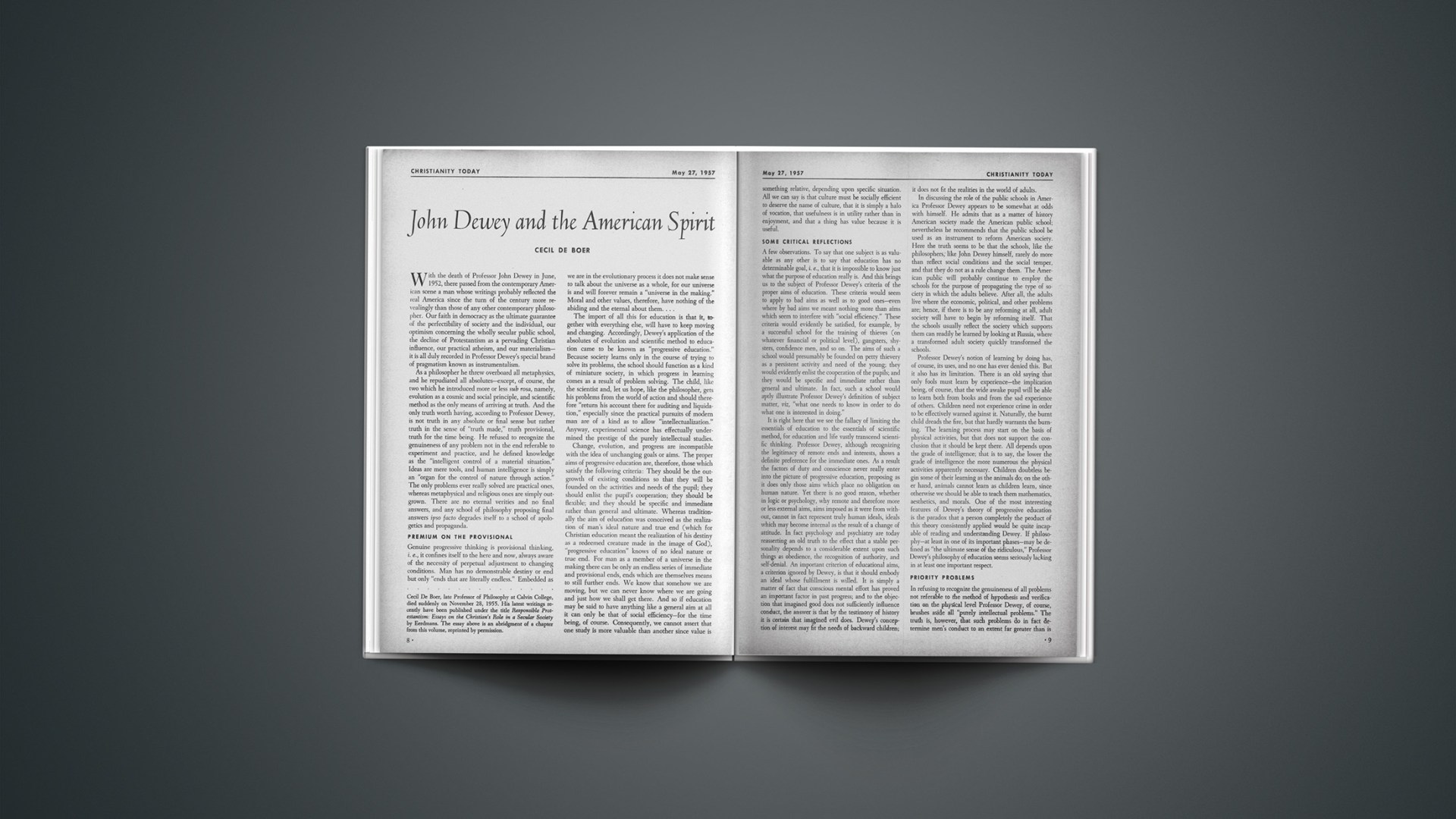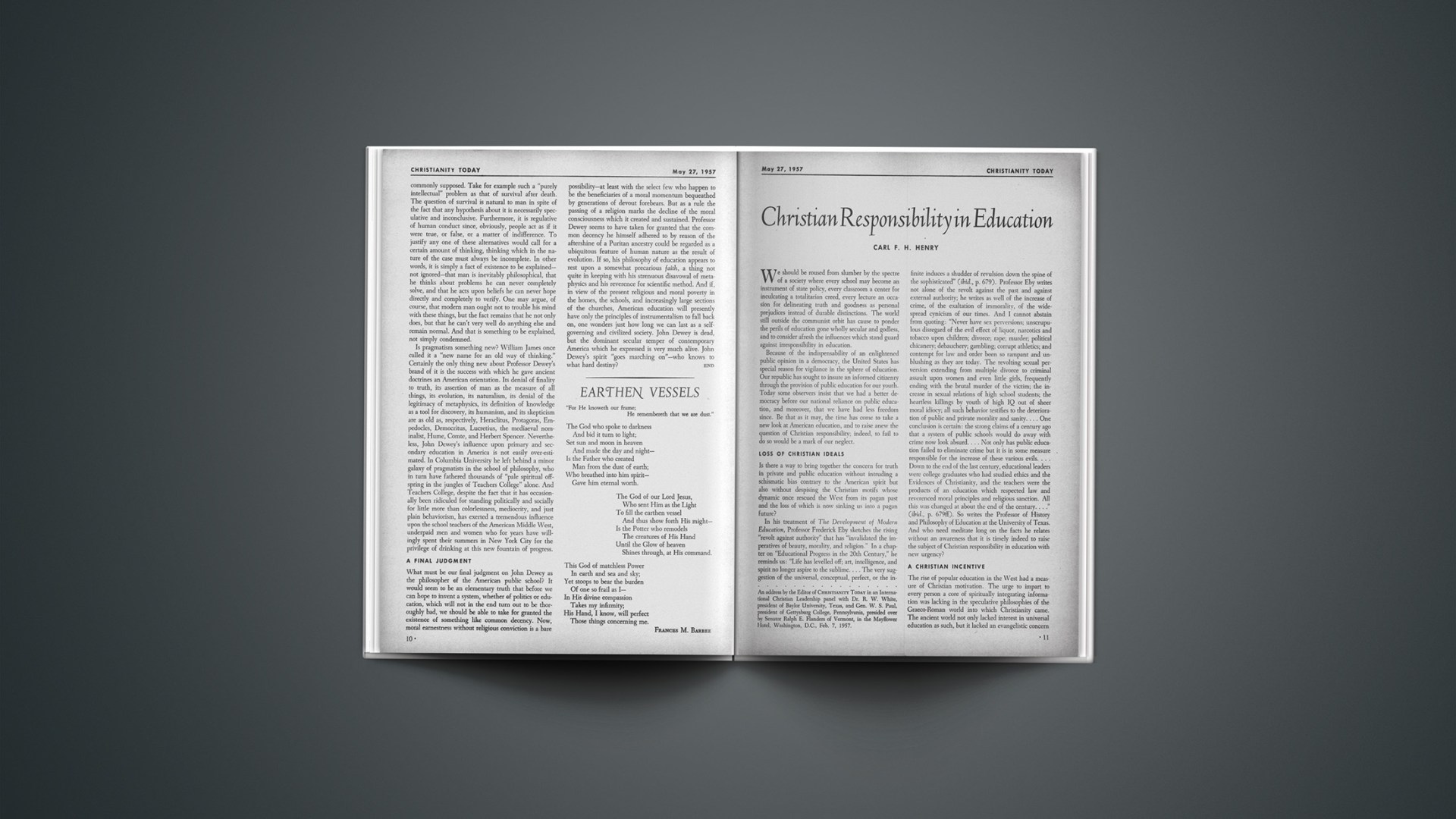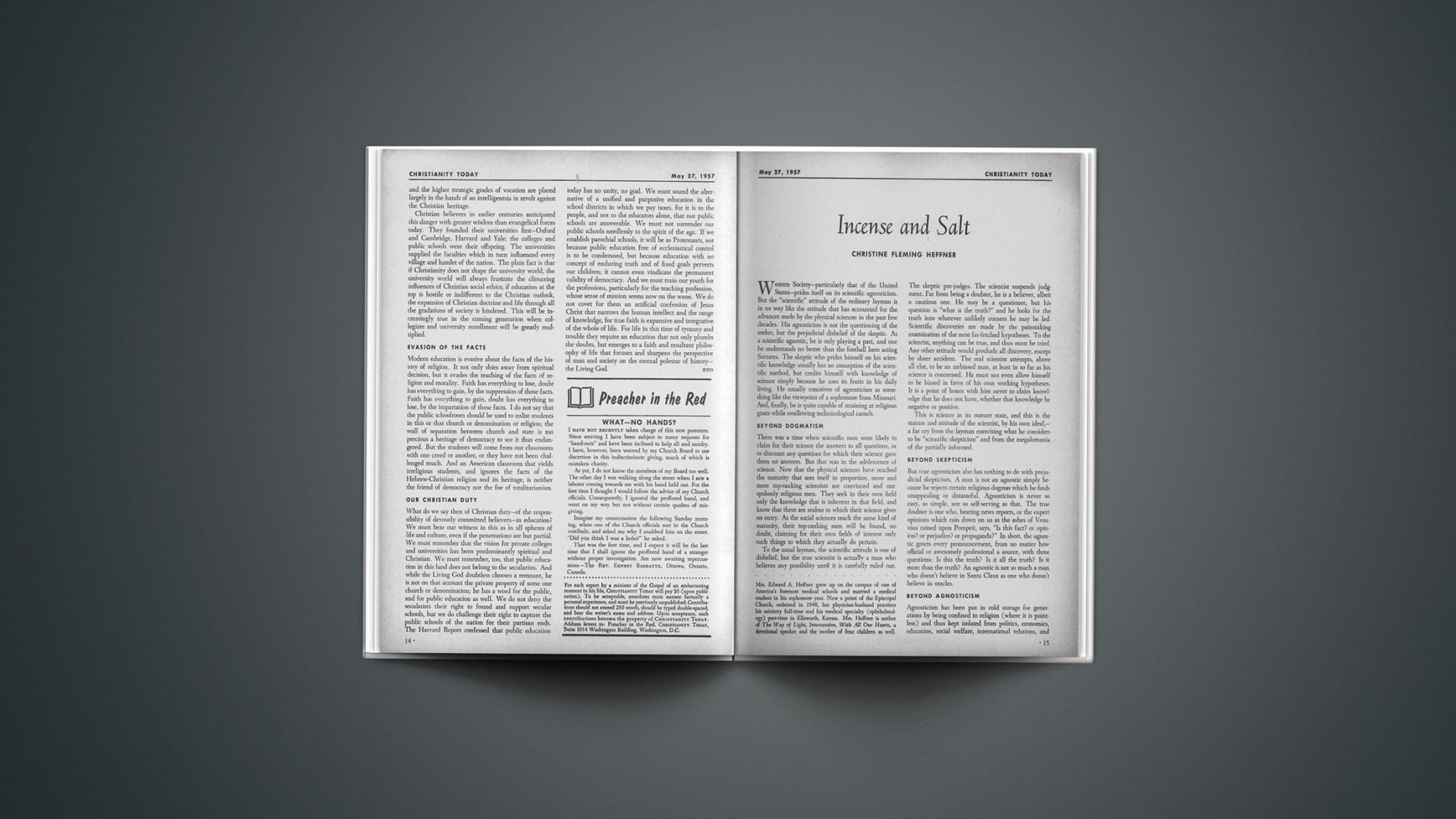100Th Anniversary
The American Church in Paris, reported to be the first American chapel founded on foreign soil, marks its 100th anniversary this year.
Formed to serve the American colony in the French capital, the church is the oldest non-governmental American institution in Europe.
The present English Gothic structure, erected over the foundation of a tobacco warehouse on the Quai d’Orsy, was completed in 1931 at a cost of $1,000,000. It replaced the first chapel on the Rue de Berri, off the Champs Elysees. The building was called a chapel until 1883 when a French law prohibiting use of the “church” for a Protestant house of worship was repealed.
Co-Existence
Wladyslaw Gomulka, leader of the United Workers (Communist) Party, said in Warsaw that future relations between the government and the Roman Catholic Church in Poland will largely depend on the church “marching together with us.”
He spoke at the first full convention of the party since he was returned to leadership after Poland’s bloodless revolt against Soviet political domination last October.
Gomulka said the party believes that the “idealist outlook” of the Roman Catholic Church will exist for a long time side by side with the “materialistic outlook” of non-believers.
He added:
“We don’t prevent the church from marching in matters of faith along its road of Roman Catholic doctrine. The church should also recognize the fact that Poland has changed her former social system, that she is building socialism.
“In matters which are of vital concern for the interests of the people’s Poland and the nation, we want the church to march together with us along the Polish road. It is on this that the long-term shaping of relations between the people’s state and the church will largely depend.”

